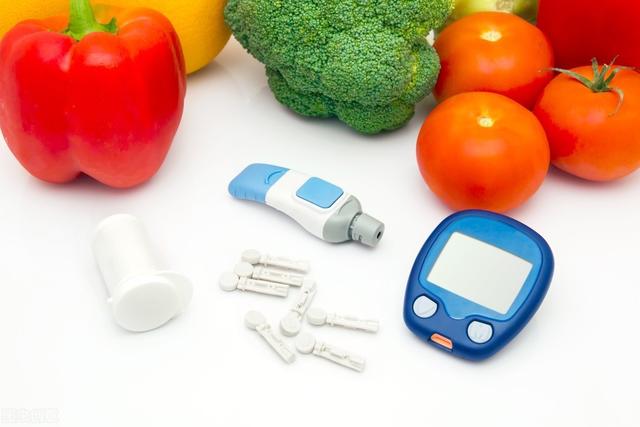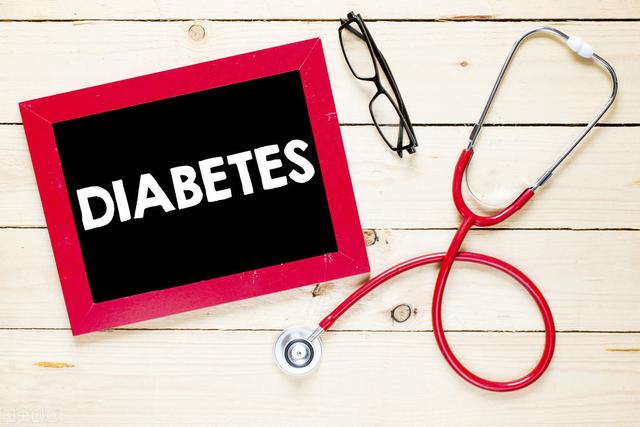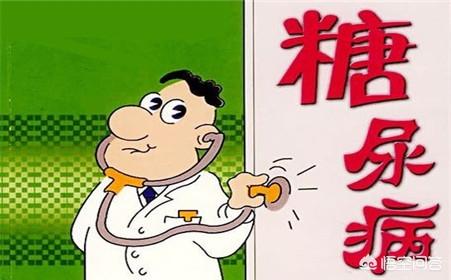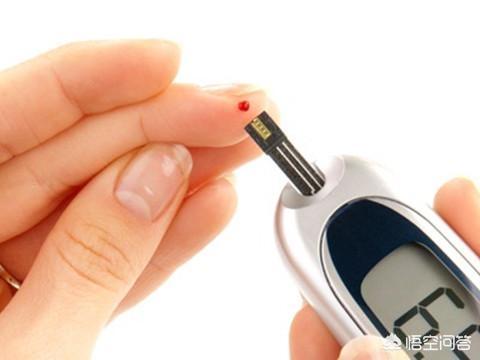Dad has diabetes, but he insists on dietary therapy instead of medication, and says he gets dizzy when he takes medication, what should I do?
It's more of a psychological resistance thing to say that you get dizzy on medication.
One of the five horse-drawn carts in diabetes health management is the health education of sugar users, which corrects their wrong views on medication, diet, exercise and monitoring.
When it comes to dizziness, your father should be more concerned about the side effects of the medication and the fear of taking more and more of it.
But it's still important to take your medication when you should! As well as following your doctor's instructions to take your medication correctly, on time and in the right amount!
Because once diagnosed as a diabetic, failure to take medication or omission of medication can lead to abnormal fluctuations in blood glucose and a variety of unanticipated and dangerous consequences.
As for dietary therapy, it also depends on whether it is a suitable dietary program for him. You can find a specialized health manager, as well as a dietitian based on his physical condition, lifestyle habits, etc., a reasonable combination of nutrition, pay attention to staple foods, meat products, as well as vegetables and fruits of the food intake program.
Only the right medication regimen, dietary regimen, plus a monitoring regimen and an exercise regimen can work in tandem to reduce the burden on the pancreas, as well as correct the disordered glucose metabolism and the unanticipated risks to the body.
Diabetes management is good, it is possible to reduce or even stop the drug, but do not blindly their own unauthorized experiments at home, take their own body joke.
Always seek professional advice from a hospital or a regular diabetes health management center.
First of all, not all diabetics have to take medication.
If your father has been diagnosed and is also reluctant to take medication, it is advisable to get a glucose meter firstRegular blood sugar testing。
If, through dietary therapy.Fasting blood glucose within 6 mmol/L; 2-hour postprandial blood glucose within 10 mmol/LIf you do, and you are not otherwise unwell, it is not a big problem to go without medication for a while.
However, if the blood sugar is not controlled within a reasonable range, it is recommended to take your father to the hospital as early as possible, as long as it is a regular hospital regardless of Chinese and Western medicine, so that the doctor can convince your father.
Lastly, dizziness after taking medication is definitely partly psychological.
You should try to enlighten your father that diabetes is a slow disease that needs to be controlled and treated for a lifetime, and that early medication and early treatment will minimize complications and lead to a long life.
Take him to the hospital and have the doctor tell him what to do! Give him a talk about the efficacy and side effects of the medication!
Diabetes is not something that can be controlled by diet alone!
That way you end up hurting yourself!
Diabetes is not scary! What's scary is its complications!
Complications are not only expensive to treat, but you suffer!
Control your blood sugar without delay!

Often you can see such helpless family members of diabetic friends who care about their patients and want them to be healthy, but their family members just don't cooperate and have all kinds of reasons for not wanting to take their medication.
The question posed by the subject is indeed possible, and there are generally several reasons for this.
Hypoglycemia occurs
Glucose-lowering drugs make the blood sugar drop, there is a hypoglycemic situation, hypoglycemic symptoms include panic, dizziness, sweating and other symptoms, generally speaking, blood sugar is lower than 3.9mmol, L, or a short period of time blood sugar drops more, there will be hypoglycemic symptoms.
In this case, you can conduct a blood glucose test 2 hours after the patient takes the medicine or when he feels dizzy, to observe the change of blood glucose, if there is no condition to measure blood glucose, or in the outdoor, you can eat a small amount of sugary food, if the symptoms improve quickly, then also hypoglycemia appeared.

When you take the medicine, you will experience discomfort, and of course the elderly do not want to take the medicine.
If dizziness caused by hypoglycemia does occur, it is necessary to take the elderly to the hospital in a timely manner to find a specialist to make adjustments to the medication to try to prevent the occurrence of hypoglycemia.
Medications can be adjusted to choose those that are safe to use that can lower blood glucose, but without hypoglycemia. With the exception of insulinotropic agents or insulin, which can cause hypoglycemia, some other medications generally do not cause hypoglycemia when used alone, and are generally convenient to take 1-2 times a day, so you can give your physician in charge of your specific situation and choose these medications to use.
Food therapy is also a treatment for diabetes
We see some of these children in our clinic, "Why don't we use medication if we have diabetes?" They don't understand that in some people's perception, a diagnosis of the disease is inevitably accompanied by treatment, which requires medication and fluids.
But as a lifestyle disease, the most basic treatment for diabetes is diet and exercise, and if you can keep your blood glucose within the target range through diet and exercise, then you don't need to use medication.

It is important to bring the elderly to a regular diabetes specialist to consult on nutritional treatment options for the elderly to prevent malnutrition due to a relative lack of knowledge and insufficient or unbalanced nutritional intake.
It is necessary to formulate a nutritional therapy and exercise therapy program suitable for the elderly's own situation, accompany the elderly more often to eat and exercise, and understand the elderly's usual dietary and exercise conditions.
Regular blood glucose and glycated hemoglobin checks are required to understand the elderly's blood glucose control, with control goals of fasting blood glucose below 7 mmol/L and postprandial blood glucose below 10 mmol/L.
Lack of knowledge about diabetes
Due to the limitations of knowledge, some diabetic patients may lack understanding of the treatment of diabetes and blindly believe that dietary therapy can solve many problems.

As Zhang Wuben a few years ago, "eggplant, green beans cure great diseases", sounds ridiculous, but some people are very superstitious, resulting in a lot of people being deceived, losing money and delaying the treatment of diseases.
Family members with this condition should find more relevant information about diabetes, which is pleasant and easy to accept, so that the elderly can slowly realize the situation of diabetes.
Take the elderly to attend diabetes education organized by some hospitals to learn more about formal diet, exercise and treatment plans. Do not participate in activities organized by pharmacies or unscrupulous groups to prevent the elderly from being deceived.
I am Dr. Sun, you can let the elderly attention to me, to learn about quality health knowledge, have questions, please ask questions, attention will be replied!
Once diagnosed, diabetes requires a healthy lifestyle with medication to achieve stable blood glucose, some patients can simply use diet and exercise therapy to bring blood glucose down to normal, but with the gradual exhaustion of the pancreatic islets, medication must be kept up, the memory of blood glucose damage will lead to vascular neuropathy, blocking the heart, brain, kidney and other organs causing related symptoms, scientific prevention and control of diabetes, do not let the health because of the misconceptions and the price to pay! !
[Professional doctor to answer your questions
Life does have a part of the diabetic people from the ideological concept of the idea that by controlling the diet can control blood glucose, to take hypoglycemic drugs is very rejected and refused to take medication, the main reason is unwilling to take long-term medication, worried about medication on the body will bring some side effects, in addition to not willing to spend money to buy medication, take the drug will feel uncomfortable and so on the reason, for such a person to how to deal with it?
First of all, their adoption of dietary control should be recognized. In the intervention treatment of diabetes mellitus, diet control is one of the most basic measures that need to be given support and encouragement. However, it is necessary to pay attention to the scientific method, so that they are not simply what to eat or not to eat, but at the core of the method of mastering a reasonable combination of various foods, and more communication and exchange with them in this regard, which will give them a sense of contentment and trust from the bottom of their hearts.

Secondly, we should help them monitor their blood glucose correctly. The purpose of dietary control is to control their blood glucose well, and if their blood glucose fails to reach the desired target after taking reasonable measures, we should help them find out the reasons, analyze which aspects of dietary control are not in place or there are misunderstandings, and make improvements in a timely manner. Afterwards, if they still cannot meet the control requirements, they will be touched in their heart and will be willing to try and accept new control methods.
Thirdly, learn diabetes prevention and treatment related knowledge with them, tell them that the occurrence of diabetic hyperglycemia is not simply eat out, but the body's mechanism for regulating blood glucose has a problem, when reducing the source of blood glucose by controlling the diet fails to achieve the purpose of controlling blood glucose, it is necessary to help the organism to improve its own glucose regulating mechanism, and it will need the help of medication, and I hope that they will try to see what will happen to their blood glucose after they have made these improvements. what kind of changes in blood sugar will occur.

Fourth, the body will have certain adaptability to long-term high blood glucose, if the blood glucose drop rate is too fast, it may cause the body to temporarily do not adapt to some discomfort, such as dizziness, headache, fatigue, panic and so on, so taking hypoglycemic drugs should start from a small dose, monitor blood glucose at any time, with a month's time to gradually control the blood glucose up to the standard, to avoid the feeling of discomfort and can be up to the standard of glycemic control to allow them to from the It is only when they can control their blood glucose to the standard that they can truly accept the medication from the inside.
In short, on the current medical level diabetes is still a disease that requires lifelong treatment, especially with the prolongation of the course of the disease, and ultimately the vast majority of people can not be separated from the control of the drug, need to have the patience to help people with diabetes to gradually accept this reality, which more monitoring of blood glucose to see the objective figures is the hard truth, to give them a blood glucose meter and often monitoring, is the most convincing.
I hope this answer can help you, welcome to click on the attention and leave a message, together to learn and exchange more health knowledge.
Your father's situation first take him to the hospital to check to see the specific blood sugar range, if it is pre-glycemic, it is recommended not to eat drugs, with the doctor's guidance for life intervention, do not privately, through reasonable exercise, balanced diet together. Observe a period of time to see, according to his body blood glucose to carry out the next program, do not be too hasty, and can not be privately random diet, so as not to cause hypoglycemia or hyperglycemia and other blood glucose fluctuations are too large.
The development of diabetes is divided into three stages, the first stage is called "high-risk group", the second stage is called "pre-diabetes", and the third stage is called "diabetes". Go to the hospital for an OGTT test, i.e. Oral Glucose Test, which is the international standard for diagnosing diabetes mellitus. Home blood glucose meter is only used to monitor whether the blood glucose is stable or not, not as a basis for diagnosis. If the fasting blood glucose is 3.9-6.1mmol/L and less than 7.8mmol/L 2 hours after meal, it can be diagnosed as normal. If the fasting blood glucose is more than 6.1mmol/L and less than 7.0mmol/L, or the 2-hour postprandial blood glucose is more than 7.8mmol/L but less than 11.1mmol/L, either condition is valid, can be diagnosed asPre-diabetes.It's often referred to asDiabetic latency.或Abnormal glucose tolerance.The diagnosis is confirmed if either fasting blood glucose is greater than or equal to 7.0 mmol/L or 2-hour postprandial blood glucose is greater than or equal to 11.1 mmol/L, and either condition is true.diabetes。
It is recommended to go to the hospital for an assessment of pancreatic islet function, and if it is still functioning well, weight and lifestyle modifications can be made under the guidance of the Diabetes Co-Care Team to achieve the goal of reversing diabetes.Reversing DiabetesIt is then possible to stop the medication in more than six months and complications can be prevented or delayed. Weight management is needed if the weight is over the standard weight or the body mass index is over 24.
在dietary structureOn needs to be assessed by a professional dietitian to see if total calorie control and a balanced diet have been achieved. The general recommendation is to eat 250g-400g of staple food, with a mix of coarse and fine, grain and bean, grain and vegetable; about 750g of vegetables, carrots, lotus root, potatoes and other root food as staple food, and as little as possible of sugar and oil mixed food such as fritters and meat barbecue; rice porridge is not recommended, and coarse grain porridge should not be overcooked, and vegetable porridge is available, and it is best to eat before eating vegetables and meat.
sporting eventExercise time needs to be assessed by an exercise instructor, and then individualized exercise programs are developed based on personal physical condition and lifestyle habits, etc. The general recommendation is to exercise 3-5 times per week, each time for about 30 minutes at a moderate intensity; maintain good emotional stability, do not be very happy or sad, and avoid nervousness, excitement, worry, and other emotions caused by elevated blood sugar.
Glucose monitoringDo this regularly as per your doctor's orders. If the individual has made better lifestyle adjustments to achieve reversal of diabetes, continue to adhere to the good can live as normal. However, if the blood sugar cannot be kept within the control target range, medication needs to be prescribed by the doctor.
If you have any other questions, feel free to leave them in the comments section.
Medicine still need to eat, food therapy is not medicine, find your father is willing to listen to people to persuade a persuasion, such as the elders of the family. The dizziness of the problem is recommended to check, why will dizziness, or do not want to take medicine excuse, after checking and then with the food therapy, usually eat food, fruit, pay attention to the control of sugar intake, to avoid aggravating the condition.
I have had the same experience, diabetes for over 20 years after a long illness treatment, body a little experience. The first 10 years of diabetes due to the diabetes treatment do not know and do not understand. Took a lot of detours. The beginning is only to take medicine, no injection blood sugar control is not good more and more complications. After hospitalization, insulin, diet and exercise, maintain a good mood. Gradually complications only tend to stabilize, get the right treatment. Diabetic patients should be treated early, early prevention, reduce complications.
This question and answer are from the site users, does not represent the position of the site, such as infringement, please contact the administrator to delete.